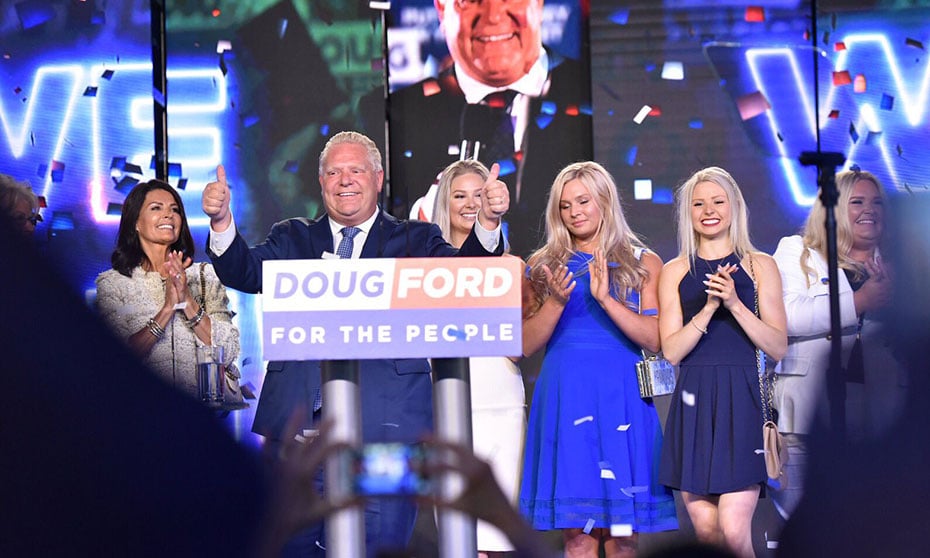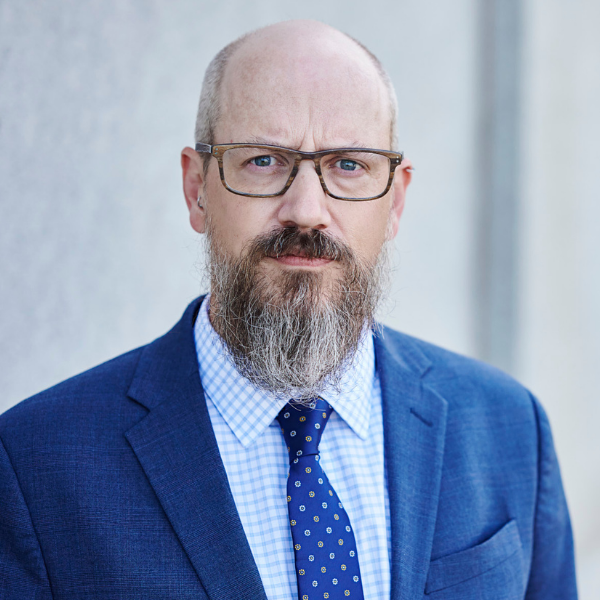Michael Spratt analyses the aftermath of Ontario’s Legal Aid funding cuts

No one ever wins when politicians play political games with legal aid. The inevitable result of the needless politicking is decreased access to justice and unfairness in our courts. And, as the recent dust-up over legal aid in Ontario has shown, politicians don’t win either – more often than not, regardless of political stripe, politicians who play games with access to justice are exposed as callous, partisan and hypocritical.
This time it all began in April, when the Ontario government slashed funding to Legal Aid Ontario by 30 per cent. The cuts made no real difference to Ontario’s bottom line but punching down on access to justice was on-brand for the Ford government.
To compound the disastrous impacts of the slashed funding, the $133 million cut took effect immediately – there was no advanced notice – despite the fact that LAO's 2019 budget had already been finalized. And on top of it all, the province directed LAO that no provincial money at all could be used to cover immigration and refugee law, meaning that vulnerable immigrants and refugees would face deportation hearings without any legal counsel.
You see, Doug Downey, Ontario’s Attorney General, believes that that federal government should carry all costs for immigration and refugee services. But instead of talking to his federal counterparts Downey was happy to use immigrants and refugees as political pawns. With no provincial legal-aid funding, injustice and unfairness was all but guaranteed, unless the federal government stepped in to fill the funding gap. Downey was happy to risk the lives of some of Ontario’s most vulnerable over a 25-million-dollar funding dispute.
Ultimately, Justin Trudeau and the federal government did the only thing they could do and capitulated to Downey’s demands to increase federal funding to the immigrant and refugee legal aid system.
But despite that fact that the Trudeau government has passed laws that will lead to more deportations and more immigration unfairness, Trudeau could not help putting his virtue-signaling partisan spin on things saying that “There's conservative politicians [who] keep trying to move us back and make the most vulnerable hurt for the decisions that they make. Conservative politicians like to say they're for the people but they end up cutting services for the most vulnerable. It's what they do."
A politician can’t help but politic. It is an election year after all.
However, the scope of Ford’s cruel legal aid cuts stretches well beyond immigration hearings.
Community legal clinics, which provide assistance to some of Ontario’s most marginalized people, were forced to roll-back services and close offices. Funding for indigenous specific sentencing submissions was slashed by more than 50 per cent. And rollbacks to criminal court services sparked a crisis in the justice system.
More and more people who can’t afford a lawyer are being denied legal aid. This is the context, back in April, after almost "hitting three telephone poles," Doug Ford called into a Toronto radio station to defend the government’s cuts to the legal aid system. The boiling public backlash seems to have gotten under his thin skin and at the end of that impromptu call Ford said that, "if anyone needs support on legal aid, feel free to call my office. I will guarantee you that you will have legal aid."
And last week, in response to continued questions by the Huffington Post’s Emma Paling, Ford doubled down on his guarantee saying the he would “continue to help anyone who calls.”
But internal government emails reveal that, despite his promises, Ford has not actually helped anyone and never had any intention of following through on his legal aid guarantee.
On April 29, Ford received a letter from a constituent seeking help because they were denied legal aid and could not afford a lawyer. Despite his personal guarantee, Ford responded that the issue was not in his “area of responsibility” and shuffled the inquiry to Attorney General.
Over the following days Ford received an email from someone “in desperate need of legal aid” and another email pleading, “You said no person would ever be without help and I am hoping that you will be able to help me.” Ford again responded that this request fell outside his area of responsibility and forwarded the request to the Attorney General.
And what was the Attorney General’s response to these pleas for help? The AG responded that they could not provide any assistance and could not “speak with LAO staff on your behalf to secure a certificate” because LAO operates “independently and without government interference.”
The heavily redacted government emails also show that in one case an immigrant or refugee wrote to Ford because they were denied legal aid. This time Ford, after expressing sympathy about the situation, suggested that any immigration related issues should be addressed to the Federal Minister of Immigration and Refugees and Citizenship, Ahmed Hussen.
Ford promised that anyone who needed legal aid would get it but government documents show that no one who contacted Ford received legal aid or assistance of any kind. Those same documents show that no one in the Ford government even had the power to intervene with LAO’s decisions.
Because Ford never really intended to help anyone.
Just like Downey using refugees as political pawns or Trudeau playing the access-to-justice hero while being totally blind to the damage his government has done to immigration fairness, Ford’s guarantee was political theater.
A liar, a hostage taker and a self-righteous partisan all played politics with legal aid and there were only losers.
Because no one wins when politicians use legal aid to advance their own interests.











